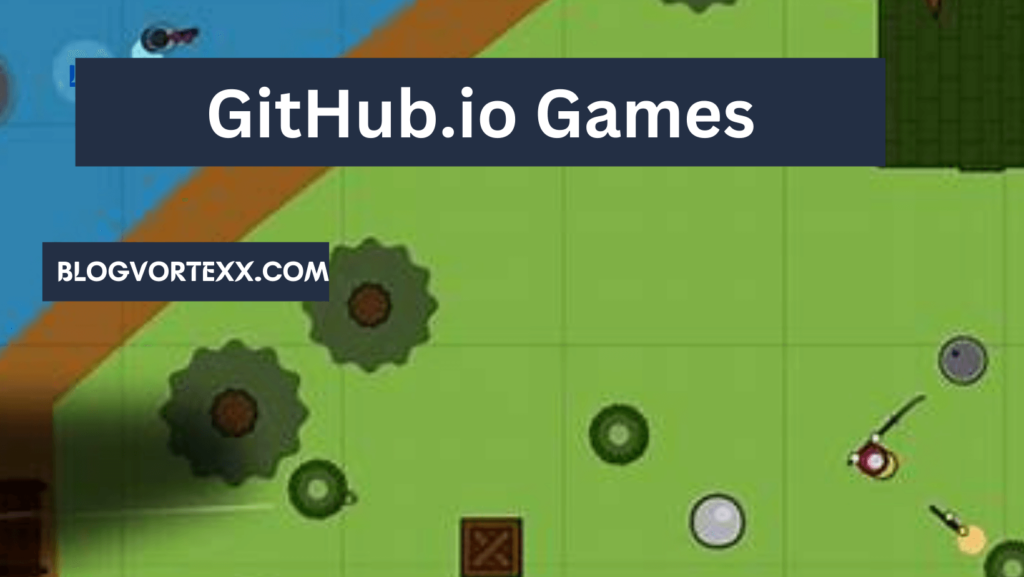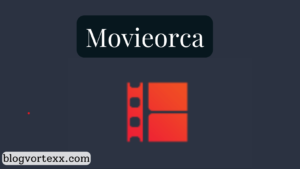Introduction to GitHub.io games
GitHub.io games are web-based games that developers create and host using GitHub Pages, allowing for easy access and sharing through web browsers. This platform enables anyone to publish their HTML, CSS, and JavaScript projects directly from their GitHub repositories, making these games accessible to a global audience without the need for paid hosting services. The open-source nature of GitHub.io games invites collaboration, encouraging developers to share their work, learn from each other, and contribute to various projects. With the growing popularity of web-based gaming, GitHub.io serves as an ideal environment for both hobbyists and professional developers to unleash their creativity, experiment with new ideas, and build engaging multiplayer experiences that connect players worldwide.
Why Choose GitHub.io for Game Development?
Cost-Effectiveness and Free Hosting
One of the primary advantages of using GitHub.io for game development is its cost-effectiveness. GitHub Pages provides free hosting for your projects, allowing developers to publish their games without incurring any hosting fees. This is particularly beneficial for indie developers and hobbyists who may not have the budget for commercial hosting services. By eliminating hosting costs, developers can focus their resources on creating and improving their games, making GitHub.io an attractive option for anyone looking to enter the game development space.
Seamless Integration with Existing Development Tools
GitHub.io seamlessly integrates with a variety of development tools, enhancing the overall development experience. Developers can utilize version control through Git, which allows for efficient tracking of changes and collaboration on code. This integration supports a range of programming environments and frameworks, enabling developers to work with their preferred tools while still benefiting from GitHub’s robust features. Additionally, the ability to use popular game engines like Phaser or Three.js alongside GitHub.io further streamlines the development process, making it easier to create complex and engaging games.
Opportunities for Collaboration and Community Engagement
GitHub.io fosters a vibrant community of developers and gamers, providing numerous opportunities for collaboration. The platform’s open-source nature encourages developers to share their projects, receive feedback, and contribute to each other’s work. This collaborative environment not only enhances the quality of games but also promotes learning and innovation. Developers can engage with a global audience, participate in discussions, and even contribute to larger projects, making GitHub.io a hub for community-driven game development. This engagement can lead to valuable insights and improvements, ultimately resulting in more polished and successful games.
Getting Started with GitHub.io Games
Creating your own game on GitHub.io can be an exciting and rewarding experience. Here’s a detailed guide on the essential steps to get you started.
Setting Up a GitHub Account
The first step in creating your GitHub.io game is to set up a GitHub account. Visit the GitHub website and sign up for a free account by providing your email address, creating a username, and setting a password. Once you confirm your email, you can log in to your account. Having a GitHub account allows you to create repositories, manage your projects, and collaborate with other developers. It’s also essential for accessing GitHub Pages, which will host your game.
Creating a Repository for Your Game
After setting up your account, the next step is to create a repository for your game. A repository is a storage space on GitHub where you can keep all your project files. To create a new repository, click on the “New” button on your GitHub dashboard. You will need to give your repository a name (e.g., “my-game”) and a brief description. Make sure to select the option to initialize the repository with a README file, which can help you document your project’s purpose. Once your repository is created, you can upload your game files or start coding directly within GitHub.
Basic Coding with HTML, CSS, and JavaScript
With your repository set up, it’s time to start coding your game using HTML, CSS, and JavaScript.
- HTML (Hypertext Markup Language): This is the backbone of your game, providing the structure and content. You’ll use HTML to create elements like headings, paragraphs, images, and links that make up your game’s interface.
- CSS (Cascading Style Sheets): CSS is used to style your game, controlling the layout, colors, fonts, and overall visual presentation. You can define styles in an external stylesheet or within the HTML file itself.
- JavaScript: This programming language adds interactivity to your game. You can use JavaScript to create game mechanics, handle user input, and update the game state dynamically. There are many resources available online to help you learn the basics of these languages, such as tutorials and documentation on platforms like W3Schools and freeCodeCamp .
Publishing Your Game on GitHub Pages
Once your game is developed, the final step is to publish it on GitHub Pages. This feature allows you to host your project directly from your GitHub repository. To publish your game, navigate to the “Settings” tab of your repository, scroll down to the “GitHub Pages” section, and select the branch you want to use (usually “main”). After saving the changes, GitHub will provide you with a URL where your game can be accessed. It may take a few minutes for your game to be live, but once it is, you can share the link with others and invite them to play your creation.
Web-Based Games: The Future of Gaming
Discussion on the Growing Popularity of Web-Based Games
Web-based games have seen a remarkable surge in popularity in recent years, driven by their accessibility and the evolution of web technologies. Unlike traditional games that often require downloads or installations, web-based games can be played instantly in any browser, making them an attractive option for players seeking convenience. This ease of access has opened the door for a broader audience, including casual gamers who may not want to invest in gaming consoles or high-end PCs. Additionally, the rise of mobile gaming has further fueled this trend, as many web-based games are optimized for mobile devices, allowing users to play on the go. Platforms like GitHub.io have also contributed to this growth by providing developers with the tools to create and share their games easily.
Benefits of Instant Playability Without Downloads or Installations
One of the key advantages of web-based games is their instant playability. Players can jump into a game with just a click, eliminating the need for lengthy downloads or complex installations. This immediacy enhances user engagement, as players are less likely to abandon a game due to waiting times. Furthermore, web-based games often receive regular updates and improvements without requiring players to download new versions, ensuring that everyone has access to the latest features and fixes. This seamless experience encourages players to return frequently, fostering a loyal gaming community.
How GitHub.io Games Fit into the Future of Gaming
GitHub.io games are at the forefront of the web-based gaming revolution. By leveraging GitHub Pages, developers can easily host and share their games, making them accessible to a global audience. The platform’s open-source nature encourages collaboration and innovation, allowing developers to build upon each other’s work and share ideas. As web technologies continue to advance, GitHub.io games will likely become more sophisticated, incorporating features such as multiplayer functionality and enhanced graphics. This evolution positions GitHub.io as a significant player in the future of gaming, where accessibility and community-driven development will be paramount.
Open-Source Collaboration in GitHub.io Games
The Role of Open-Source in Game Development
Open-source development plays a crucial role in the evolution of gaming, particularly on platforms like GitHub.io. By allowing anyone to access, modify, and contribute to a game’s code, open-source fosters a collaborative environment that encourages creativity and innovation. Developers can learn from each other, share best practices, and build upon existing projects, leading to higher-quality games. This collaborative spirit not only enhances the gaming experience but also democratizes game development, making it accessible to individuals regardless of their resources or backgrounds.
Examples of Collaborative Projects and Community Contributions on GitHub.io
Numerous successful projects on GitHub.io exemplify the power of open-source collaboration. For instance, games like 1v1.LOL and Hextris have benefited from community contributions, with developers adding features, fixing bugs, and enhancing gameplay based on player feedback. These collaborative efforts often lead to rapid improvements and updates, ensuring that games remain fresh and engaging. Additionally, GitHub’s issue tracking and pull request features facilitate communication between developers and players, enabling a continuous feedback loop that drives innovation.
How Collaboration Enhances Game Quality and Innovation
Collaboration in open-source game development significantly enhances both the quality and innovation of games. By pooling resources and expertise, developers can tackle complex challenges more effectively, resulting in more polished and feature-rich games. The diverse perspectives brought by multiple contributors often lead to innovative gameplay mechanics and creative solutions that a single developer might not envision. Furthermore, community involvement fosters a sense of ownership and investment among players, who are more likely to support and promote games they feel connected to. Ultimately, this collaborative approach not only improves individual games but also contributes to the overall growth and evolution of the gaming industry.
Diverse Game Types on GitHub.io
GitHub.io games span a wide range of genres, catering to diverse player preferences and showcasing the creativity of developers. From classic arcade-style games to modern multiplayer experiences, the platform offers something for everyone.
Overview of Different Genres
Some of the most popular game genres found on GitHub.io include:
- Puzzle Games: These brain-teasers challenge players to solve intricate puzzles using logic and problem-solving skills. Examples include games like Hextris, which puts a unique spin on the classic Tetris formula.
- Platformers: Platformers test players’ reflexes and timing as they navigate treacherous environments, jumping between platforms and obstacles. Many retro-inspired platformers can be found on GitHub.io, capturing the nostalgia of 8-bit and 16-bit gaming eras.
- Shooters: Shooter games offer fast-paced action, challenging players to eliminate enemies and overcome challenges. 1v1.LOL, a third-person shooter with building mechanics, is a standout example that combines elements of Fortnite and Counter-Strike.
- Strategy Games: These games require players to think critically, managing resources and making decisions that impact the outcome. GitHub.io hosts a variety of strategy games, from turn-based classics to real-time multiplayer experiences.
- Multiplayer Games: Collaborative and competitive multiplayer games foster social interaction and teamwork. GitHub.io enables developers to create engaging multiplayer experiences, allowing players to compete against each other or work together towards common goals.
Examples of Popular Games
Some of the most popular and innovative games on GitHub.io include:
- 1v1.LOL: A third-person shooter with building mechanics, similar to Fortnite, playable directly in the browser.
- Hextris: A fast-paced puzzle game inspired by Tetris, challenging players to match falling hexagons of the same color.
- Desperate Gods: A digital board game with a mix of Monopoly and dark fantasy elements, supporting up to four players in a multiplayer setting.
- BananaBread: A 3D first-person shooter built using Emscripten, ported from the original C++ code.
Encouragement to Explore and Create
The diversity of game types on GitHub.io is a testament to the creativity and skill of its developer community. As a platform, GitHub.io encourages exploration, experimentation, and the creation of unique gaming experiences. Developers are free to push the boundaries of what’s possible, combining genres and mechanics to craft innovative games that stand out from the crowd.
Community Engagement and Feedback
GitHub.io thrives on the active participation and engagement of its community, which includes both developers and players.
Importance of Community Interaction
Community interaction is vital for the growth and improvement of games on GitHub.io. By sharing their projects, developers can receive valuable feedback, bug reports, and suggestions from players. This feedback helps shape the direction of the game, ensuring that it meets the needs and expectations of the community.
Sharing Games and Receiving Feedback
When developers share their games on GitHub.io, they open the door to a wealth of feedback and collaboration opportunities. Players can test the games, provide ratings and reviews, and engage with developers through issues and pull requests. This feedback loop allows for rapid improvements and updates, keeping games fresh and engaging.
Networking and Collaboration
GitHub.io’s community also provides a platform for networking and collaboration among developers. By participating in discussions, contributing to projects, and sharing their own work, developers can build relationships with like-minded individuals. These connections can lead to future collaborations, knowledge sharing, and the formation of development teams, further enhancing the quality and diversity of games on the platform.
How Developing Games on GitHub.io Can Enhance Programming and Design Skills
Developing games on GitHub.io offers a unique opportunity for aspiring developers to enhance their programming and design skills. The process of creating a game involves various stages, from conceptualization to coding and design, allowing developers to gain hands-on experience with essential technologies and methodologies.
Resources and Tutorials Available for Aspiring Game Developers
GitHub.io is not just a platform for hosting games; it also serves as a rich resource for learning. Numerous tutorials and courses are available that cover the fundamentals of web development, including HTML, CSS, and JavaScript, which are the building blocks for creating games. For instance, platforms like GitHub Skills provide interactive courses that guide users through the basics of using GitHub, managing repositories, and deploying projects using GitHub Pages. Additionally, developers can find extensive documentation and community-contributed resources on GitHub that can help them learn best practices in coding, game design, and project management. These resources make it easier for beginners to get started and for experienced developers to refine their skills.
Encouragement to Learn from Existing GitHub.io Games and Projects
One of the best ways to enhance your skills is to study existing projects on GitHub.io. By exploring various games, developers can gain insights into different coding techniques, design principles, and gameplay mechanics. Analyzing the source code of popular games allows aspiring developers to see how experienced programmers structure their projects, manage assets, and implement game logic. This hands-on learning approach encourages experimentation and innovation, as developers can modify existing games to see how changes affect gameplay. Engaging with the community through discussions and contributions can also provide valuable feedback and foster a collaborative learning environment.
Conclusion
In conclusion, developing games on GitHub.io is an excellent way for aspiring developers to enhance their programming and design skills. The platform not only offers a space to create and share games but also provides access to a wealth of resources, tutorials, and community support. By learning from existing projects and engaging with fellow developers, individuals can refine their skills and contribute to the vibrant world of web-based gaming. Whether you are just starting or looking to expand your expertise, GitHub.io presents endless opportunities for growth and creativity in game development.
Also Read: GoMyFinance.com Invest: Your Gateway to Financial Growth
FAQs
What are GitHub.io games?
Web-based games created and hosted using GitHub Pages, accessible through web browsers.
Why choose GitHub.io for game development?
Cost-effective, integrates with development tools, encourages collaboration.
How do I get started?
Set up a GitHub account, create a repository, code with HTML/CSS/JS, publish on GitHub Pages.
What game types can I create?
Diverse genres like puzzles, platformers, shooters, strategy, and multiplayer.
Are there learning resources available?
Yes, tutorials, courses, and insights from exploring existing GitHub.io games.
How does community engagement benefit development?
Feedback, bug reports, suggestions, networking, and collaboration opportunities.
Can I create multiplayer games?
Yes, using web technologies like JavaScript and frameworks such as Socket.io.
What are some popular GitHub.io games?
1v1.LOL, Hextris, showcasing innovative gameplay across various genres.
How can I contribute to existing games?
Fork the repository, make changes, submit a pull request to share improvements.
What’s the future of web-based games on GitHub.io?
Promising, with advancements in web technologies and increasing developer exploration.












